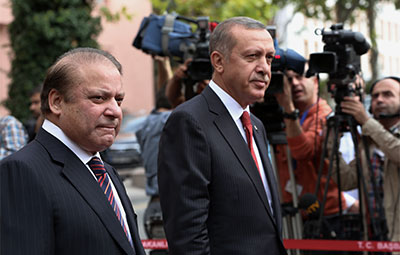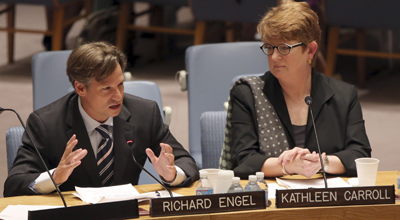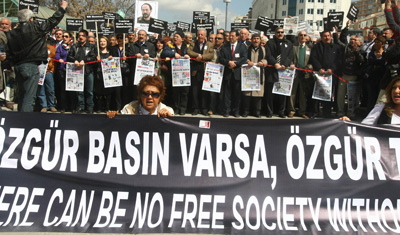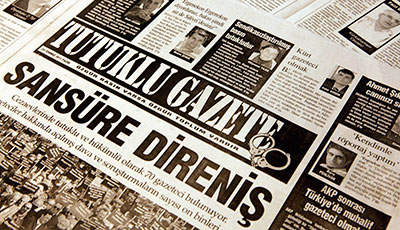Joel Simon/CPJ Executive Director
Joel Simon was the executive director of the Committee to Protect Journalists from 2006 to 2021. His writing on media issues has appeared in The New York Times, The Washington Post, The Guardian. and The Wall Street Journal, and he is a regular columnist for Columbia Journalism Review. Under his leadership, CPJ was honored with the Thomas J. Dodd Prize in International Justice and Human Rights, a News & Documentary Emmy, and the 2018 Chatham House Prize. His book, The New Censorship: Inside the Global Battle for Media Freedom, was published in November 2014, while We Want to Negotiate: The Secret World of Kidnapping, Hostages, and Ransom was published in 2018. Follow him on Twitter @Joelcpj.

Mission Journal: Why Turkey matters
Turkey is hardly a press freedom paradise, but what makes the country so exciting for journalists is the amount of news it generates on any given day. The domestic story is huge, with near-daily street protests, the booming economy beginning to sag, and the prospect of regional conflict looming with Syria. And Istanbul is a…

After Security Council, what next for journalist safety?
Speaking at a U.N. Security Council discussion about the protection of journalists, Associated Press Executive Editor and CPJ Vice Chair Kathleen Carroll remembered the 31 AP journalists who have died reporting the news and whose names grace the Wall of Honor that visitors pass as they enter the agency’s New York headquarters. Most were killed…
Transparency, accountability at stake in Manning trial
On June 3, when the long-anticipated court-martial of Army Pfc. Bradley Manning begins in Fort Meade, Md., journalists will crowd the courtroom. But at some point the press and the public likely will be ordered out while confidential testimony–including from State Department officials and active military personnel– is heard. If the pre-trial proceedings are any…
Responding to Hacked Off
Some years back during a visit to the Gambia–the West African nation ruled by a thin-skinned and mercurial president, Yahya Jammeh–I holed up in the sweltering Interior Ministry and pressed officials to release imprisoned journalists and ease up on the country’s brutal media crackdown. The officials resisted, arguing that the press in Gambia was “reckless…
Mission Journal: Who is a journalist in Egypt?
Egyptian journalists, besieged by punitive lawsuits and under threat, agree that under President Mohamed Morsi “there is no press freedom, only the courage of journalists,” as editor Ibrahim Eissa put it. What they can’t agree on is–in a climate of freewheeling, mutable media–who exactly is a journalist?

Will Israel respond to query on targeting Gaza journalists?
On December 2, CPJ sent a letter to Israeli Prime Minister Benjamin Netanyahu requesting an explanation for airstrikes on media facilities during the November 2012 military action in Gaza. The strikes damaged two media buildings and killed and injured a number of journalists. Israeli officials said the military targeted terrorist infrastructure, but provided no explanation…

For Turkey, world’s leading jailer, a path forward
Turkey has no business being the world’s leading jailer of journalists. But the numbers don’t lie. With 49 journalists imprisoned for their work, according to CPJ’s annual worldwide prison census, released today, Turkey holds more individuals behind bars than Iran (45), China (32), or Eritrea (28). How did Turkey find itself in this situation? Unlike…

Questions about CPJ’s Turkey report? Here, our answers.
Last week’s release of CPJ’s report on Turkey’s press freedom crisis generated widespread domestic media coverage and sparked a robust public debate. The response from Turkish journalists and commentators was largely positive, but there were some negative reactions as well. Turkey’s Justice Ministry has promised a detailed response this week. Here is a summary of…

In Boston, journalist Moloney battles to protect sources
In December 2002, the U.N. Tribunal charged with prosecuting war crimes in the former Yugoslavia ruled that Washington Post reporter Jonathan Randal could not be compelled to provide testimony in the case of a Bosnian Serb official accused of carrying out a campaign of ethnic cleansing.”If war correspondents were to be perceived as potential witnesses…